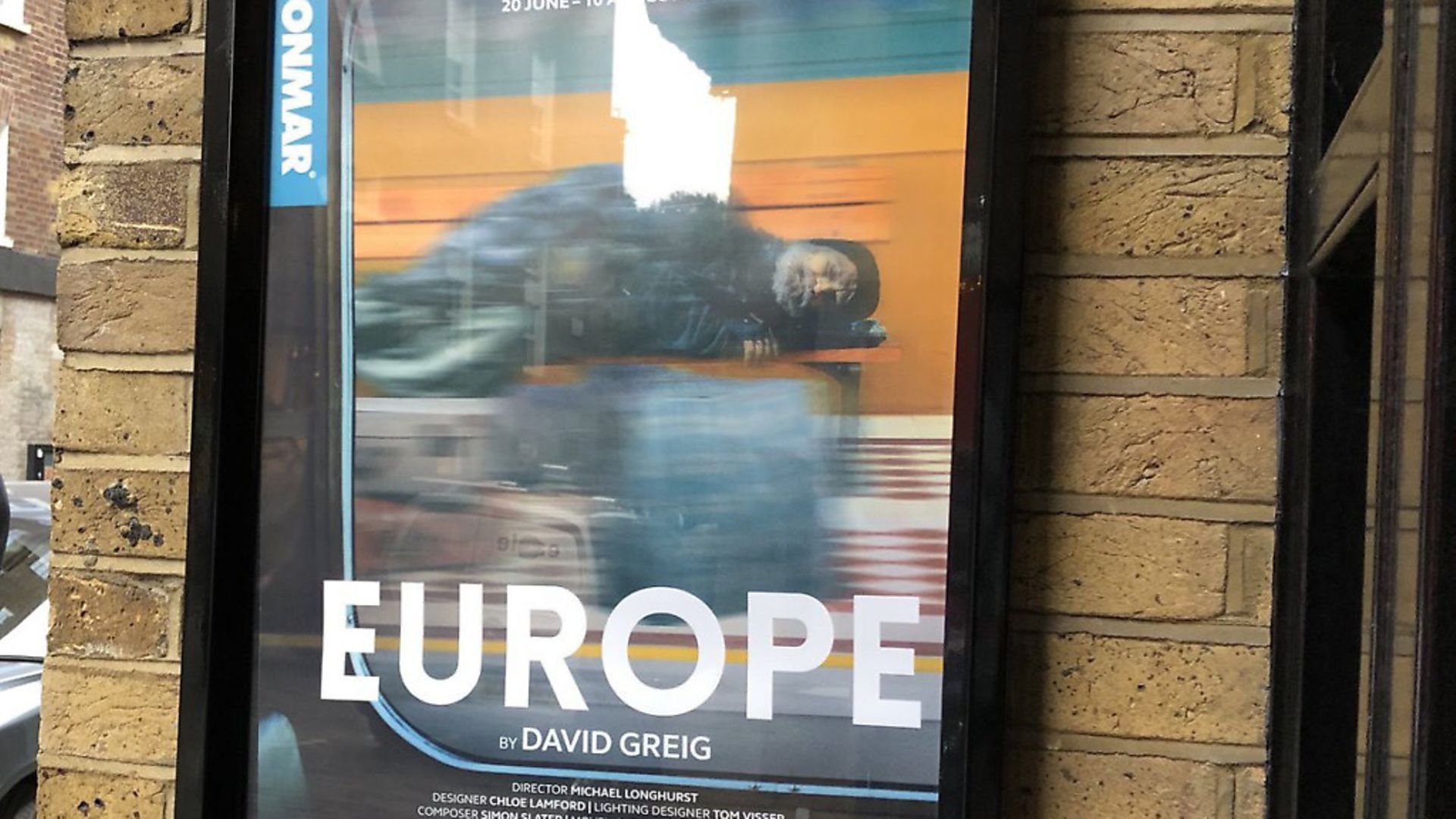
TIM WALKER speaks to Michael Longhurst about the Donmar Theatre’s revival of Europe – and why he is keen that it sends a very political message.
“This country has been sitting on a powderkeg for too long. A spark was bound to catch. He said he’d tighten up on immigration controls. After all… feelings were running high all over the continent.”
The line is from David Greig’s play Europe was written 25 years ago in response to the Balkan civil wars, but it has an obvious message for our times about borders and populism and how the masses can always be whipped up into a frenzy when it comes to “foreigners.”
It is Michael Longhurst’s inaugural production as artistic director of the Donmar theatre in London and, an avowed believer in the European Union, he knows very well that he is making something of a mission statement. “When I chose this as my first production, it looked very much as if we would now be out of the European Union and it seemed to me absurd to just ignore all of the upheaval surrounding that.
“I believe that theatre should always be inherently political and that it should never shy away from tackling important issues. Not a single word of the play has been changed, but it didn’t have to be. Europe shows that there is nothing new under the sun. These tensions that we are seeing coming to the surface now have always been there.”
A youthful 38, Longhurst has had a series of hits as a director, most notably Constellations, which transferred from the Royal Court Upstairs to Broadway, to, more recently, a sumptuous production of Amadeus at the National and Caroline, or Change, which made it to the West End by way of Chichester and Hampstead.
While he still finds it daunting to follow in the footsteps of such illustrious predecessors as Sam Mendes, Michael Grandage and Josie Rourke at the Donmar, he says his preoccupation with getting the production absolutely right means he hasn’t the time to be terrified. He also recognises that theatre now has little alternative to be radical and challenging.
As he knows only too well, the Donmar has the same age demographic as the National which means most of the punters have grey hairs. What worries him – as it does every theatre boss across the country – is how theatre will have a future if it doesn’t start to attract a younger audience and soon.
“There is a generation coming up that has become fixated with the internet and the only way to lure them away from that is to be relevant and to talk to them directly about what is happening in their world. Young people can’t be allowed to retreat into a kind of virtual reality. We are in danger of losing our sense of community and theatre is about the only time large groups of people get together to share human experiences.
“I think if we are becoming less sensitive and compassionate as a society – and I think of the way some people reacted to images of boats full of refugees capsizing – then I people not going to theatres enough might well have something to do with that. Theatre is very good at humanising us. It also allows us to appreciate difference – to see enacted on stage the stories of people who are very different to us – and to feel an affinity to them. I think above all now we need to be more understanding and less fearful of difference.”
– Europe runs at the Donmar Theatre in Covent Garden, London, from June 20 to August 10.
Warning: Illegal string offset 'link_id' in /mnt/storage/stage/www/wp-includes/bookmark.php on line 357
Notice: Trying to get property 'link_id' of non-object in /mnt/storage/stage/www/wp-includes/bookmark.php on line 37







